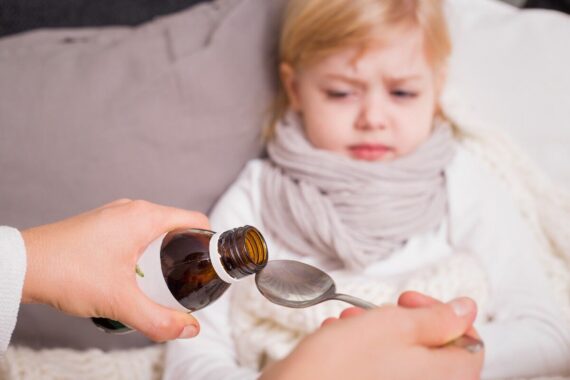Government attempts to ease antibiotics shortage with hoarding ban

The Government has added antibiotics used to treat strep A infections to the list of medicines that cannot be exported from the UK or hoarded, as prescribing GPs continue to struggle with supply shortages.
As of today, amoxicillin and penicillin V are on the list issued by the Department of Health and Social Care (DHSC), along with azithromycin and cefalexin.
It follows a medicine supply notification from the DHSC on 12 December that supplies of antibiotics for the treatment of group A strep have seen a surge in demand ‘and may be temporarily in limited supply at certain wholesalers and pharmacies’.
Manufacturers have supplies and deliveries into wholesalers and pharmacies were being expedited in the coming days, the notification said.
NHS England has published guidance on strep A for clinicians, in collaboration with the RCGP and other organisations, which advises primary care to have a low threshold for prescribing antibiotics and referral to hospital.
It also advises what treatment to use should first-line antibiotics be unavailable and how to use solid dosage forms in children by crushing or dispersing tablets in water if necessary.
Pharmacy wholesalers have confirmed that availability of antibiotics should improve and more stock was being delivered on a daily basis.
Pulse had reported last week that a spreadsheet was being circulated to GPs showing that the three main national pharmacy wholesalers – Phoenix, Alliance and AAH – currently have no stock of amoxicillin 250mg/5ml suspension or both 125mg/5ml or 250mg/5ml Penicillin V suspension.
There have been 15 confirmed deaths of children from strep A since September.
GP consultations for scarlet fever and disease notifications are rising more steeply than expected for this time of year as are cases of invasive group A streptococcus, although less pronounced, the UK Health Security Agency (UKHSA) has warned.
A total of 6,285 cases of scarlet fever have been reported in England and Wales in the past six weeks with more than 13,000 cases between weeks 27 to 49, the UK Health Security Agency latest figures show.
Dr Richard Cook, a GP in West Sussex, said the last two days had been the busiest he had ever seen in his practice.
‘We have been inundated with children over the last 48hrs. Antibiotic availability is very poor which is not helping.’
Professor Azeem Majeed, a GP and professor of primary care and public health at Imperial College London, said: ‘We are getting reports from across the country of shortages of antibiotics, particularly preparations for children.
‘My own practice was informed by our local pharmacist last week that he was down to his last few bottles of amoxicillin.
‘In these circumstances, I think it is sensible to try to improve the availability of key antibiotics in the UK.’
Meanwhile, the Competition and Markets Authority has confirmed will be investigating after reports from pharmacists that antibiotic prices have increased amidst the heightened demand.
A CMA spokesperson said: ‘People have got real concerns about the price of antibiotics used to treat Strep A, and we want companies to be clear about their obligations under the law. There should be no doubt that it is illegal for a dominant company to charge excessive prices, or for any companies to collude to drive up prices.
‘We are working to establish the facts of what is currently happening in the market and welcome new information as part of our work. We stand ready to take action if there is evidence of anti-competitive behaviour that breaks the law.’
Pulse July survey
Take our July 2025 survey to potentially win £1.000 worth of tokens

Visit Pulse Reference for details on 140 symptoms, including easily searchable symptoms and categories, offering you a free platform to check symptoms and receive potential diagnoses during consultations.
Related Articles
READERS' COMMENTS [5]
Please note, only GPs are permitted to add comments to articles











But they said there were no shortages …
Not that many years ago all sorts of academics were telling not to use antibiotice in chirdren with sore throats. I wonder if any will ever say “sorry”?
I remember a day when 497 people died from covid. And the pub was rammed in November. As did more the next day, and next and nanny state continued. Hoarding ban? Like an appointment hoarding ban? And DNA hoarding ban? Are they suggesting some public misuse services? And might be even using the black market? ..wow.
“consultations for scarlet fever and disease notifications are rising more steeply than expected for this time of year as are cases of invasive group A streptococcus, ALTHOUGH LESS PRONOUNCED”
As an epidemiologist pointed out in the BMJ responses, this means that the case fatality rate for this year’s scarlet fever is actually lower than previous years. Therefore the public health message for patients to have a lower threshold to attend GP and GPs to have a lower threshold for antibiotic prescribing seems surprising.
I thought this corrupt government said there were no shortages.